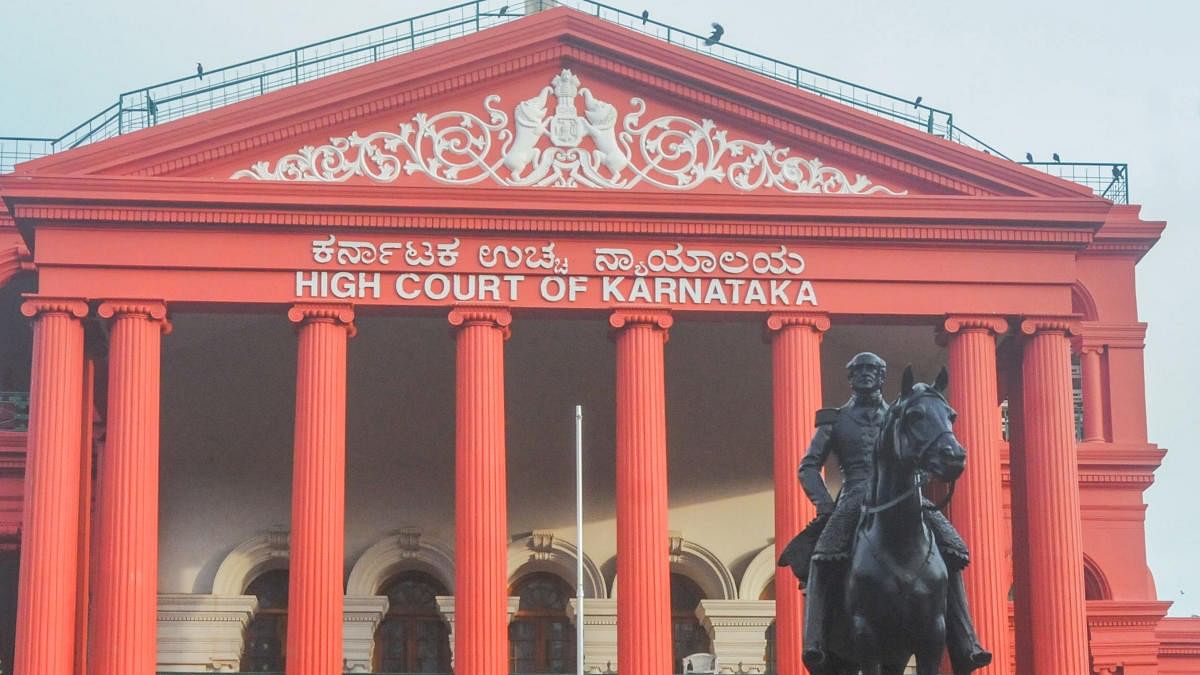
Karnataka HC.
Credit: DH Photo/S K Dinesh
The High Court of Karnataka has upheld the constitutional validity of the Karnataka Land Revenue (III) Amendment Act, 2011.
Justice Suraj Govindaraj dismissed a batch of petitions filed by Brigadier Maletira A Devaiah (Retd) and others.
The petitioners, belonging to the Kodava race, had contended that two amendments, the explanation for ‘occupant’ under section 20(2) and section 80 on payment of land revenue, disrupts the Kodava joint family system.
They argued that revenue authorities had been insisting on joint family members furnishing partition deeds for the purpose of entry of their names in the records as “occupant.” This compels joint families to enter into a partition deed against their customary and religious practice.
Full ownership
Additional Advocate General Vikram Huilgol submitted that persons in possession of Jamma Bane lands will be registered as “occupants” entitling them full ownership of the said land, bringing about uniformity in the state’s land revenue system.
Justice Govindaraj cited the affidavit filed by the under-secretary to the Revenue Department wherein it is categorically stated that there would be no requirement for a partition to be effected for the purpose of registration of the name of a family member in the RTCs, and/or for 11-E sketch to be obtained as regards the area falling to the share of each individual family members.
“By way of amendment, what is now only achieved is that the entire family would be registered as the occupant of the land including Jamma Bane land. The names of all the members of the family would also be entered into in Column No. 9, thereby recognising the rights of the entire family in respect of the property owned by the family including Jamma Bane land,” the court said.
The court further said that if any member of the family wants to separate, the same would have to be done in accordance with an agreement between the parties or in accordance with law, since the Kodavas are governed by the Mitakshara school of the Hindu law.
“As such, it would be governed by the Hindu Succession Act, 1956, as amended from time to time. Ultimately the effect of the impugned amendment is to confer full ownership rights over the Jamma Bane land and does not in any manner compel any member of the family to partition/separate himself or herself from the family and/or for the property to be divided by metes and bounds,” the court said.